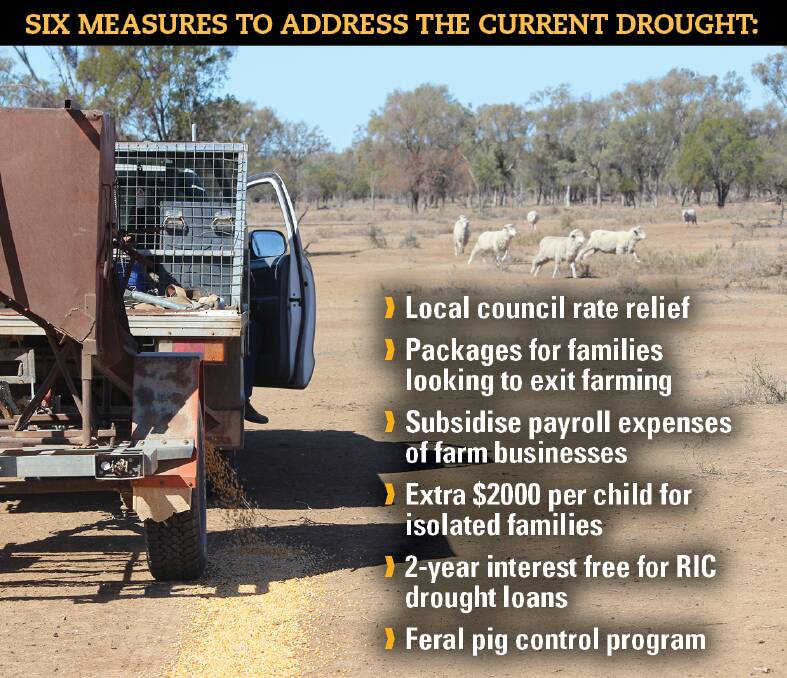
THE NATIONAL Farmers Federation (NFF) is urging the Federal Government to provide exit packages for farmers looking to make the heart-breaking decision to exit the industry in light of relentless drought.
The recommendation is just one of a number of suggestions made in the long-awaited official drought policy from the nation's peak farmer body.
Rate relief for farmers and local councils and the extension of the popular interest free drought loans were some of the other major pillars of NFF's immediate priorities to help tame Australia's record-breaking dry spell.
But the organisation also has acknowledged that a longer-term strategy for drought is needed.
As northern NSW and southern Queensland labour through their third consecutive year of drought the NFF has come up with a two-pronged policy that aims to not only address the acute current problems caused by the big dry but also to set up a long-term framework that allows farmers to better prepare for similar events in the future.
Government drought policy has been in the spotlight of late, with the Morrison Government's decision last week to announce cash payments to drought-stricken farmers attracting mixed reviews from the broader Australian community.
In its drought policy, the NFF said it does not only want a system that helps those farming but rural and regional businesses and communities that are impacted by ongoing dry conditions.
In terms of how its policy would work in practice the NFF has recommended government establish a drought committee to oversee the implementation, monitoring, review and amendment of the policy, along with an ongoing drought forum event every second year.
The forum would give the chance for all those impacted by drought to discuss how drought is impacting the community and what can be done better in terms of a government response.
Another mechanism to ensure national drought policy remains relevant will be an automatic review every four years.
The request for exit strategies marks a shift in the discourse on drought.
While previously the official focus has been on keeping farmers afloat, the NFF stance acknowledges the reality of the unrelenting drought and how similar events in the future would impact on farm businesses' ongoing viability especially in more marginal farming areas.
NFF also said its policy was designed to help local councils which have been hamstrung by their ratepayers' battles with drought.
The NFF policy pushes for the government to step in to allow farm businesses to defer local government and pastoral lease rates without incurring interest and to provide the equivalent funds to local government so rural municipalities are not left with a budget black hole.
In order to allow farmers to retain staff, which would also have the flow-on effect of meaning rural communities retained a critical mass of population, the NFF proposal calls for the government to subsidise farm workers to the extent of the Newstart allowance, meaning a farmer would essentially get the cost of a year's Newstart off employee wages, covering for the fact there is virtually no on-farm income to pay wages.
Other topics discussed include a payment of $2000 per child for families in designated remote areas, the interest free concessional loans and working towards the eradication of feral pigs which are especially problematic in dry conditions.


